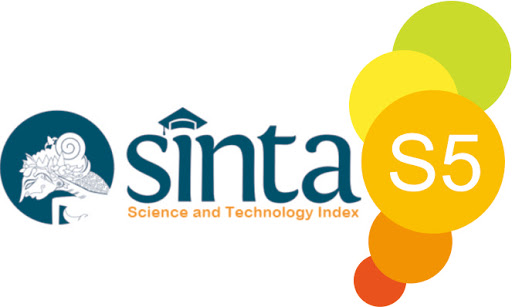Empowering Cadres in COVID-19 Prevention with IT-Based Snake and Ladder Game in Medan Tuntungan Subdistrict, Medan City
DOI:
https://doi.org/10.32734/abdimastalenta.v8i2.13927Keywords:
Empowerment, Snake Game Software, Knowledge, Attitude, COVID-19Abstract
Health cadres have long been known for their role in health development. For this reason, cadres can be used as learning facilitators in the community, and can continue to be encouraged to carry out services and counseling in the community, including COVID-19. How to conduct education in order to maintain health protocols encourages the service team to design learning media that are of interest to the public, both young and old, because the media is through playing, namely the snake and ladder game. The IT-based Snakes and Ladders game referred to in this service is Snakes and Ladders Board Game Using Joysticks. Only by using the joystick the dice can rotate without having to be close together. Each ladder and snake on the ladder snake board contains various questions related to Covid-19 including the characteristics of the virus, how the virus spreads, prevention of virus transmission and protocols that should be carried out so as not to contract Covid-19. There are 41 questions for ladders and 37 questions for snakes. This service was carried out on 12 cadres representing 12 Kelurahan in the working area of the Medan Tuntungan Health Center. Education through the media is very fun for the cadres because they learn how to play. This can be seen from the increased knowledge and attitudes of cadres about covid 19 before and after being educated on the Snakes and Ladders Game Board using a media joystick. This media already has IPR number EC00202156832.
Downloads
Downloads
Published
Issue
Section
License

This work is licensed under a Creative Commons Attribution-ShareAlike 4.0 International License.
The Authors submitting a manuscript do so on the understanding that if accepted for publication, copyright of the article shall be assigned to Jurnal Abdimas TALENTA as well as TALENTA Publisher Universitas Sumatera Utara as the publisher of the journal.
Copyright encompasses exclusive rights to reproduce and deliver the article in all forms and media. The reproduction of any part of this journal, its storage in databases and its transmission by any form or media, will be allowed only with written permission from Jurnal Abdimas TALENTA.
The Copyright Transfer Form can be downloaded here.
The copyright form should be signed originally and sent to the Editorial Office in the form of original mail or scanned document.












